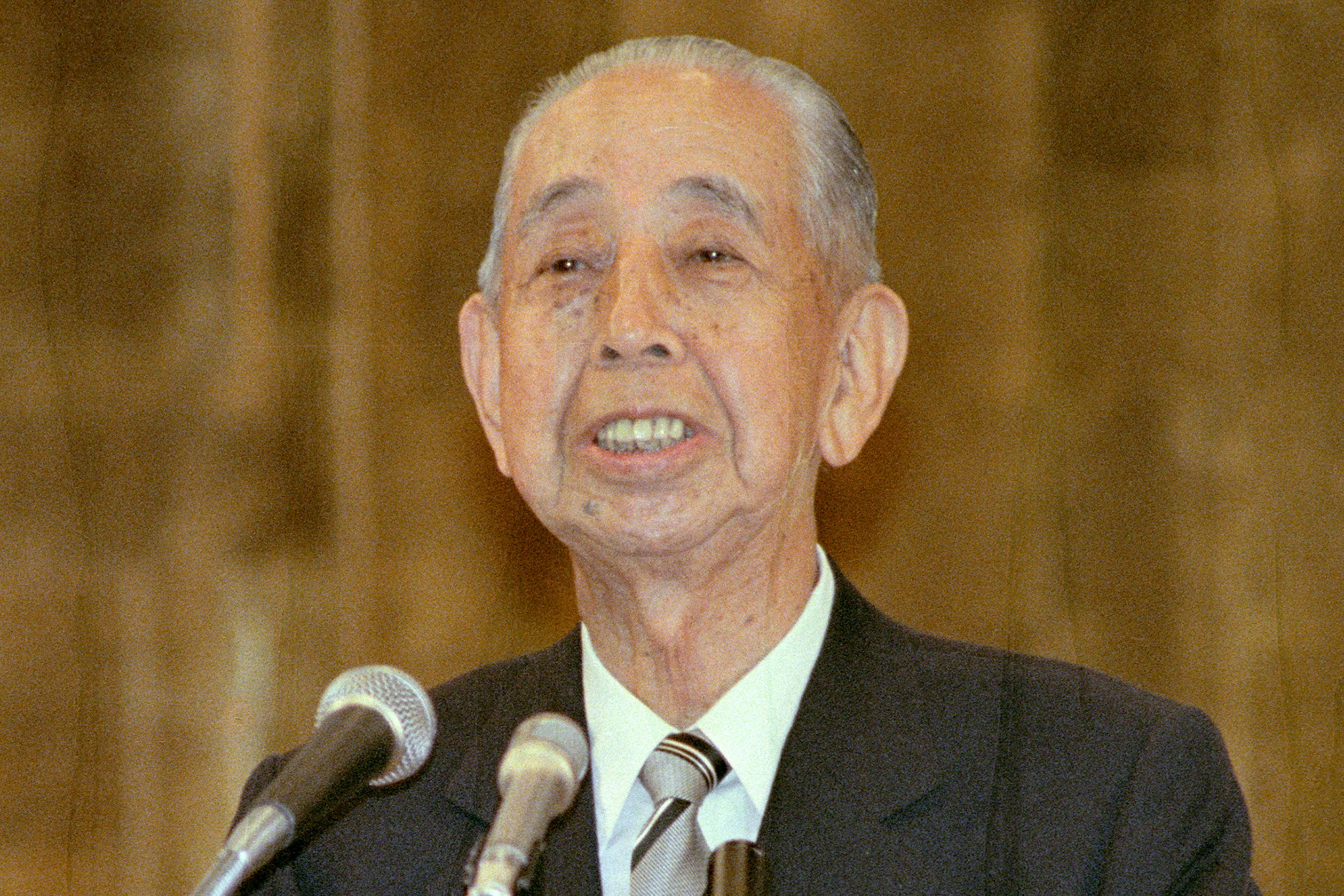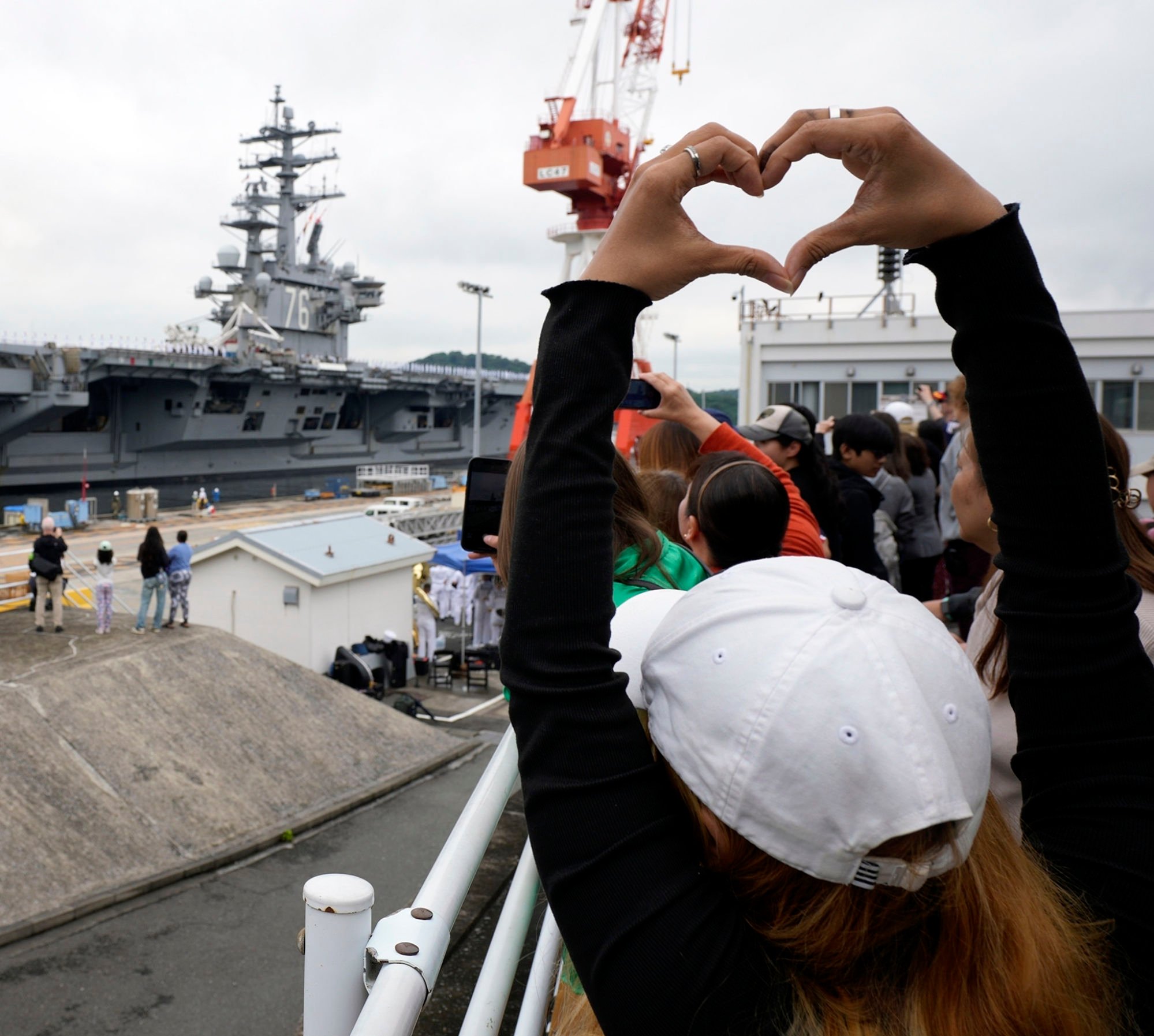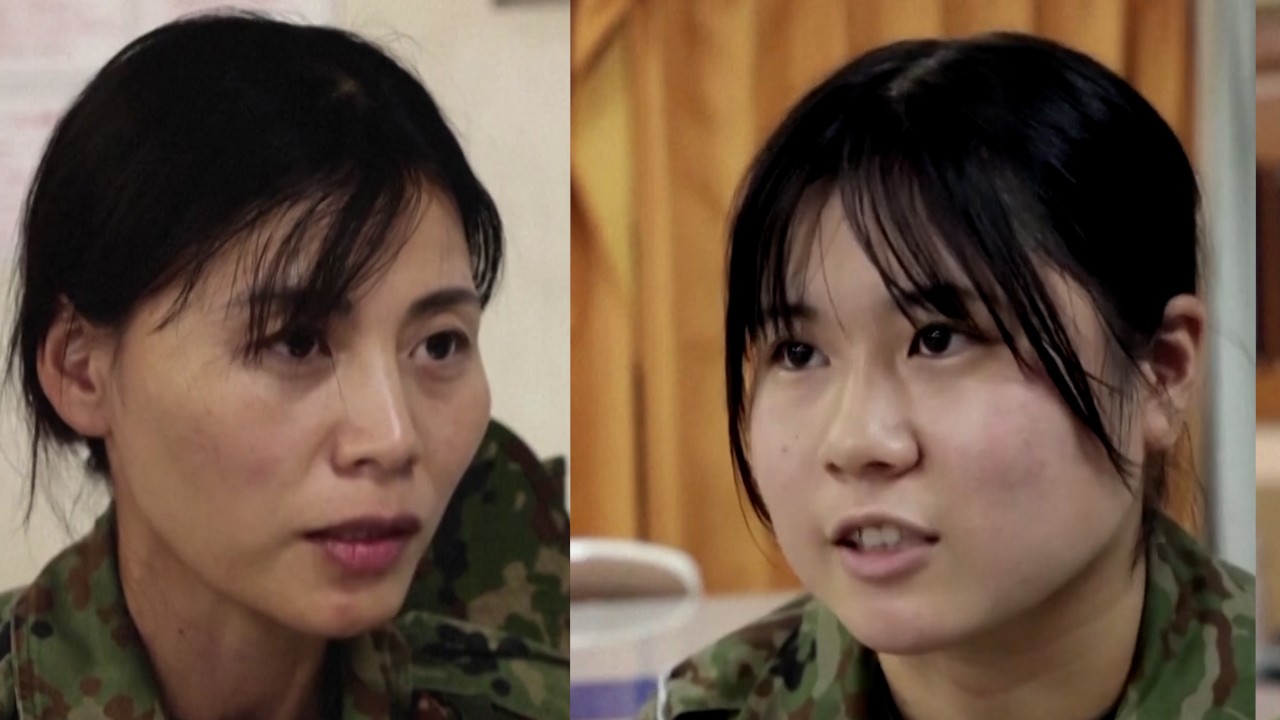Shinobu discovered the documents in the US National Archives and Records Administration and the National Security Archive. They cover negotiations from 1958 to 1960, primarily involving Japanese foreign minister Aiichiro Fujiyama and US ambassador Douglas MacArthur, who presided over the surrender of Japan in WWII and was the country’s de facto leader from 1945 to 1951.

In February 1958, prime minister Nobusuke Kishi addressed the Diet, saying that Japan would not permit the US to bring nuclear weapons into Japan or its territorial waters. This policy would effectively reverse the previous tacit agreement with Washington, leaving the US at a military disadvantage against the Soviet Union in the Pacific.
MacArthur was instructed to find a way of getting around Kishi’s promise to the Japanese people and still have nuclear weapons aboard warships docked in US bases in the country.
“The US needed this agreement to allow the US military to operate as it did before revisions to the Japan-US Security Treaty,” Shinobu told This Week in Asia.
“In other words, US vessels were porting in Japan with nuclear weapons on board and wanted to continue to do so after the revision of the security treaty.
“Japan accepted the US request because Japan was in a weak negotiating position,” Shinobu said. “It was the Japanese side that wanted the revision of the treaty, and they had to accomplish that at any cost.”

The solution was that the revised security treaty – signed on January 19, 1960 – contained a clause that allowed US warships to continue to enter Japanese ports without telling the Japanese authorities in advance that they were carrying nuclear weapons.
The clause was kept secret – despite deep concerns on the Japanese side that if word of the agreement leaked, it could prove fatal to Kishi’s government as it directly contradicted the prime minister’s vow in the Diet. Shinobu believes the administration “would probably have collapsed”.
“The Japanese people and the Socialist Party, as well as others, wondered if the Seventh Fleet was porting with nuclear weapons on board. Once that became obvious, I don’t think the government could have explained it,” he said, adding that any such political turmoil would also have worsened the country’s security relationship with Washington.
James Brown, a professor of international relations specialising in Russian affairs at the Tokyo campus of Temple University, said Japan was still suffering from “nuclear allergy” with the atomic bombings of Hiroshima and Nagasaki still fresh in people’s memories.
“There was very strong public opinion against anything to do with nuclear weapons in the 1950s and even though Japan essentially agreed on the matter, the government of the day felt that it was just so sensitive that it had to remain a secret,” he said.
He agreed that a leak revealing Kishi had lied and approved the US military’s nuclear weapons in Japanese waters would have led to his resignation, although the dominant Liberal Democratic Party would likely have replaced him with another LDP politician and moved on.
Stephen Nagy, a professor of international relations at Tokyo’s International Christian University, said the Kishi government ultimately had little choice but to go along with Washington’s wishes.
“Japan says it has three firm non-nuclear principles, but they are ironically protected under the US nuclear umbrella,” he said. “That position is understandable and pragmatic, but still contradictory.”
Japan’s present government still adheres to those same principles, Shinobu said, although they are not legally binding and are more akin to national policy. And the issue is moot at the moment, he added.
“After the end of the Cold War, President George Bush Snr decided that no nuclear weapons would be carried on ships during peacetime,” he said. “The US government also emphasises Japan’s three non-nuclear principles, so it is unlikely that vessels carrying nuclear weapons will call at Japanese ports during peacetime.”


